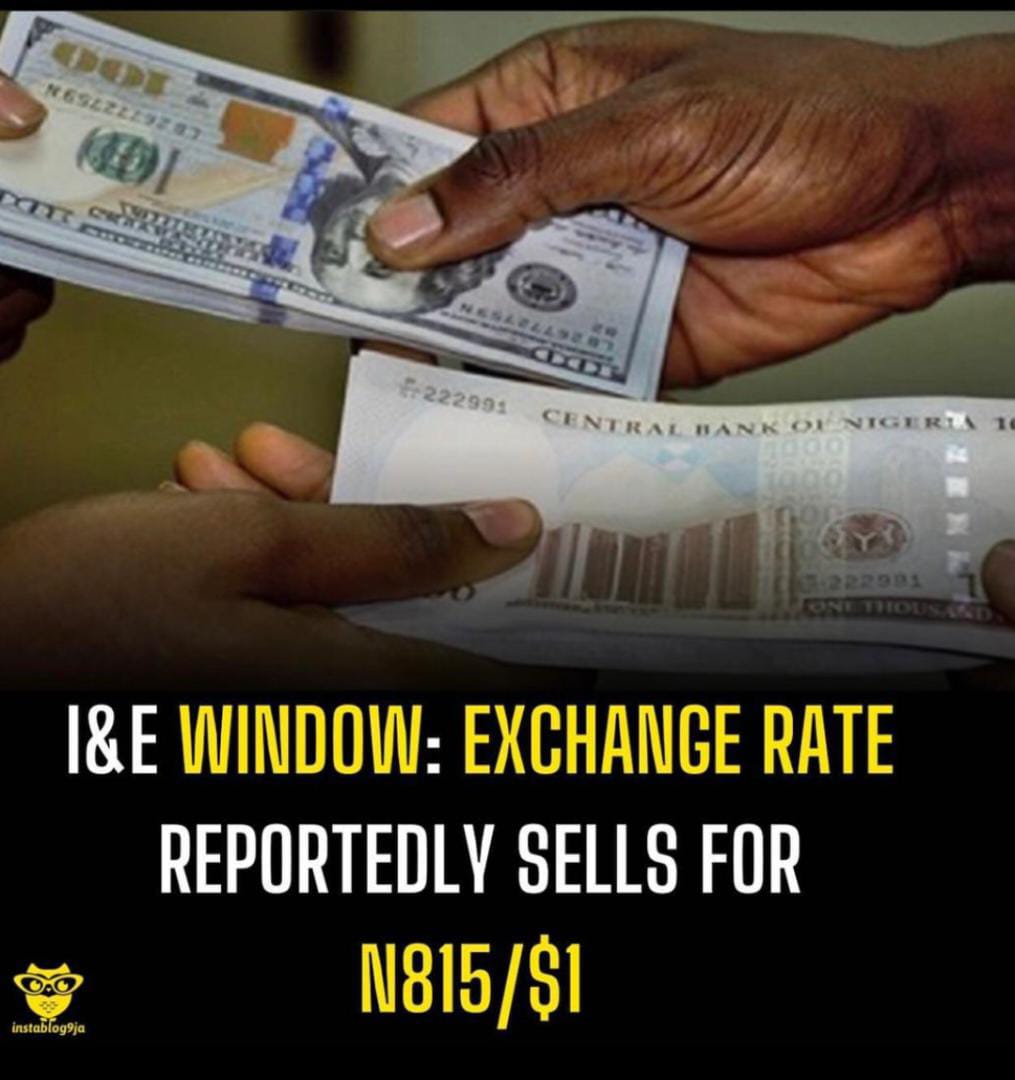The exchange rate between the dollar and naira fell to N803/$1 at the investor & exporter window on Friday, July 15, 2023.
This is the lowest ever the exchange rate has fallen to since Nigeria adopted the managed float exchange rate system and the first time the rate has closed above N800/$1.
This is as the country’s forex reserves closed at $34 billion as of July 11th 2023.
The closing rate of N803/$1 represents a 7.3% decline from the start of the week when it closed at N744/$1. The first signal of a challenge was when the exchange rate closed at N776/$1.
I&E Window falling: Data from the FMDQ where the exchange rate trades unofficially reveal the exchange rate depreciated by 7.72% falling from the N746.28 closing rates of Thursday, July 13, 2023.
Forex turnover at the I&E window was just $46.9 million representing a 46.33% decline day on day. This is also the lowest point since May 2nd, 2023.
The market also registered a record intra-day high of N829/$1 even higher than the parallel market rate. The intra-day low was, however, N689/$1.
The intra-day high is also the lowest ever we have seen for the exchange rate since the revised I&E window was launched.
Parallel market: Checks at the parallel market also show a similar plummetting of the exchange rate as it fell to N815/$1 per Nairametrics research.
At the P2P window where the exchange rate is trading using cryptocurrency stable coins, rates sold for around N817/$1.
Rates also fell across other currencies such as Euro and Pounds, trading for as low as N885/$1 and N1050/$1 respectively.
Meanwhile, Nigeria’s forex reserves closed at $34 billion as of July 11th 2023.
According a report by Nairametrics, BDC operators said early in the week that the continuous policy of shutting them out is not helping the forex market as they continue to be a major play.
According to their report, BDC operators are advocating for increased participation and involvement in the foreign exchange market to ensure the success of the new exchange rate policy implemented by the Central Bank of Nigeria (CBN).
According to their chairman, Gwadabe, “The volatility of the naira continues to underpin the slow economic growth of Nigeria. The I&E window is laudable, it’s patriotic and nationalistic, but there is no policy that can actualize its mission without carrying the interest of the subsector (which is the BDCs). The I&E window is supposed to run on three legs, the banks, the CBN and the BDCs, overtly or covertly, the BDCs are missing.’’
Some of the challenges of the exchange rate could be due to the lower supply of forex in the market despite demand pressures still remaining.
For example, some manufacturers who spoke to Nairametrics indicated they are still unable to get forex on the official market, forcing them to resort to the black market.
The supply constraint is said to be piling pressure on the price as more Nigerians increase their demand for dollars as we approach the holiday season.
There is also pressure from Nigerians stashing forex ahead of the school fees season starting in September 2023.
Analysts at Nairametrics Club House show “FollowTheMoney” also opine the economy is still not fully optimized for the exchange rate to achieve the stability we seek.
For example, Nigeria’s inflation rate is high at 22.4% for May, yet the interest rate for one-year treasury bills is 5.9 %pa.
The low-interest rate is thought to be a huge disincentive for foreign investors as they will rather invest in countries with better economic stability.
For example, interest rates for UK assets rose during the week strengthening the pound.
Nairametrics Chief Analyst, Ugodre Obi-Chukwu, also addressed the matter on Arise TV, opining that Nigeria is still facing a money supply of about N55 trillion, which is fuelling demand for exchange rates.
Nigerian banks also appear to be fuelling demands as they launch several forex-related products aimed at driving forex liquidity.
For example, some banks have increased the amount of forex that can be spent on dollar cards abroad.
The central bank has also amended its forex remittance policies, allowing banks and forex operators to convert diaspora remittances to naira and the I&E window.
CBN Mum: Despite the market volatility, the central bank is yet to make any comment explaining how the issue is to be addressed.
This might be addressed at the next MPC slated for the 17th and 18th of July.


